What a coincidence that less than a month after I sent a final (and pointed) letter to the French ambassador and tossed out all but a few pages of the petition seeking the repatriation of Jikji, I was invited back to Cheongju. An event was due to take place at the Cheongju Arts Center, just across the street from the Cheongju Early Printing Museum and Heungdeoksa, the Buddhist temple where, in 1377, this document was crafted by use of movable metal type. With the publication of my book, Jikji, and One NGO’s Lonely Fight to Bring It Home, three years ago, I conceded defeat.
I first met Lee Sun-young while touring Cheongju National Museum circa 2017. She and Kim Sun-jung had come to my book-publishing party at LBC coffee shop (unofficial Jikji headquarters, now closed). It was Ms. Lee who contacted me indirectly and said that some Jikji-oriented thing was happening in Cheongju. Could I come? Partly out of gratitude to her and Mr. Kim, I agreed to do so.
The bus pulled into Cheongju’s terminal around noon. There to meet me were Ms. Lee and Lim Jun-bin, of whom I had heard. He was the author of a poem about Jikji that won a distinguished prize, and this was the impetus for an affair due to take place the next day, September 18. The three of us got into his car and started following a path I have traveled many times: from the bus terminal to the Early Printing Museum and Heungdeoksa. Well before we arrived, this smiling and enthusiastic man had told me of his passion for Jikji and his desire to bring it back. The event planned for Cheongju was just the beginning, he said. Mr. Lim wanted to have another at the Blue House, the home and office of Korea’s president. That, he asserted, would lead to one in Paris. Now you’re talking, Mr. Lim! The Frenchies, as I have stated a thousand times or more, must let go of this precious cultural and historical artifact.
My friends had a lot of things planned. We bought some food at a convenience store and consumed it while sitting on a bench in front of Heungdeoksa. I was wearing a Bring-Jikji-back-to-Korea T-shirt and gave one to Mr. Lim. Photos were taken of us holding my Bring-Jikji-back-to-Korea banner there and inside the museum. The staff members, whom I had not met before, appeared thoroughly pleased to see us and to know of our efforts to have Jikji repatriated.
We then walked across the street to an adjunct of the museum, one where people can get a demonstration of how movable metal type was made and put to use in the 14th century. Never before had I availed myself of this experience. Ms. Lee had already stated her wish to give me “MVP” treatment, and so it began. I got a seat on the front row as about 30 people watched a young man do a show-and-tell performance. It was most educational, and I got a much better idea of what those long-ago Korean artisans had done. Creating movable metal type was a painstaking and ingenious (and probably dangerous) process. After the demonstration was over, Mr. Lim spoke up. He informed the audience, most of whom were students from Sangju Girls High School, that I was the head of a (defunct) NGO that sought to have Jikji brought back. I unfurled the banner, and you can imagine the sound of those young female voices. The moment was documented with more photos, of course.
There was no time to waste, Ms. Lee and Mr. Lim said. We returned to his car and drove about 15 kilometers, allowing me to experience parts of Cheongju (population: 850,000) that I had not seen before. In time, we came to a gold-colored Buddhist temple known as Haeunsa. Our purpose was to meet Deok-sam Snim, a monk. The gathering, which consisted of the Venerable Snim and two female assistants, me, Mr. Lim and Ms. Lee, took place as we sat on the floor of his office/residence. Only I did not employ the lotus position. One of those ladies, Dae Do-hwa, was president of the Haeunsa Buddhist Believers Association, and I would be seeing more of her in the next 24 hours. As 100% of the conversation was held in Korean, I was a bit excluded; Ms. Lee sometimes leaned over and whispered to me what was being said or discussed.
I detected a yawning gap between the opinions of those five people and me, or at least what I had presented in my book. Yes, I summarized as best I could what Jikji was about and how it is held in high regard by Buddhists. But I wrote that its content is secondary to the fact that it is the oldest extant document printed on movable metal type. That is its historical significance. Ms. Lee was feeding me all this philosophical stuff that I really did not care too much about, even making mention of the environment and global warming. I believe I wrote in the book that if the oldest such document was something as mundane as an invoice for food, lumber or coal, that would make no difference. It would still be proof that the printing press derived from east Asia, not Johannes Gutenberg’s workshop in Mainz, Germany. I am not a Buddhist but an American-born amateur historian and writer, and a Christian to boot. This meeting, which had begun with a series of respect-giving prostrations, went on a bit too long. Another 15 minutes were devoted to touring the temple itself—a very impressive edifice, I must confess.
They had planned for us to adjourn to a nearby restaurant, but I had other ideas. Exhausted from the bus ride and all these activities and people chattering among themselves in Korean, I yearned for the silence of a hotel room and the opportunity to read more of my book about the history of Okinawa. They dropped me off at the Bora Bora Hotel and said good evening. The bed was firm, the air-conditioning worked well, and I was happy.
I did a 30-minute walk the next morning, read more of the aforementioned book at a Paris Baguette and nursed a green tea latte. I checked out of the hotel at noon on Sunday and waited for Ms. Lee and Ms. Dae to arrive in the latter’s white Mercedes-Benz. We went to an attractive area overlooking a lake and an oddly designed wedding hall/convention center. With many restaurants available, they let me pick. I randomly went with a Chinese one. After eating a hefty meal, we spent an hour by the lake. I took the opportunity to inform Ms. Lee of my prostate issues, and she suggested that maybe the monk at Haeunsa could help me. He is very wise, she said.
Ms. Lee also made reference to Cheongju’s new mayor, Lee Beom-seok. He is younger and has a better attitude than his predecessor, Han Beum-deok. How well I remember Mr. Han’s scowling face when he saw me and my colleagues at the UNESCO/Jikji Festivals in 2013, 2015 and 2017, waving the banners, gathering signatures on the petition and talking with European scholars. Mr. Han wanted us to vacate his tourist-oriented event. We told him, or at least I did, that we were living in a democratic country and had every right to be there and to express our views. Jikji, we insisted, had to be returned to Korea.
Ms. Lee, Ms. Dae and I then drove to Cheongju National Museum, which had recently undergone a renovation. I was very pleased to see my Dharma friend, Mr. Kim, there. He exudes calm and good cheer, like the Buddha himself probably did during his earthly life. Without too much time to spare, we drove to the Cheongju Arts Center. Mr. Lim was there already, setting things up. I am still unclear how involved he was in arranging this event, which drew about 1,300 people. Outside, we displayed the banner and took photos with various groups of people. Inside, we had seats on the second row. A few minutes before the event began, I had the pleasure of meeting Mayor Lee, Jang Byeong-hak (a member of the Chungcheongbuk Provincial Assembly), Lee Yang-woo (the director of the Jikji Awareness Movement Headquarters) and two or three others. They flattered and thanked me for those 6 1/2 years of campaigning, and shook my hand. The MC, a handsome young man who spoke very well, stood almost in front of us. There were musical interludes, dancing of both classical and modern varieties, singing and a recitation of Mr. Lim’s poem by a young woman wearing a hanbok dress. I had been told by Ms. Lee to expect an introduction. When I heard the MC say “Texas” and my name, I knew what to do. I stood up, turned to the audience and gave an American-style wave. They dutifully clapped.
The finale of the Jikji Culture and Arts Concert called for about 25 people to come up on stage while the musicians played and the audience cheered. My ego did not require me being among them, but I was not too surprised when Mr. Lim and Ms. Lee pulled me out of my seat. Mr. Lee, naturally, was also among the 25. Oh, but being on stage was not enough. He insisted I go to the center of the group. It was all very nice, I do not deny.
While waiting for the traffic in the parking lot to dissipate, Mr. Kim, Ms. Lee, Ms. Dae and I sat at a picnic table and ate some boiled eggs, apples and other tasty items. Ms. Lee bought me a bus ticket for 8:30 p.m. and sent it to my smart phone. Never before had I gotten on a bus bearing an e-ticket. What can I say? I am a late adopter.
My head was spinning as I rode back to Seoul laden with gifts of food from these dear people. I was serious when, in 2019, I said that our NGO’s drive was over. I cannot imagine taking such an active role again. And yet with so many people seeming to agree with me that the French must let Jikji go, I am willing to contribute. Maybe the nature of Cheongju’s UNESCO/Jikji Festival can be altered, maybe the new president (Yoon Suk-yeol) will have a wiser approach than Park Geun-hye and Moon Jae-in before him, and the same is true for the Korean ambassador to France, Choi Jong-moon. I would tell him what have said countless times before—whenever Korean and French politicians meet, Jikji has to be on the agenda. Don’t worry about stepping on Gallic toes!
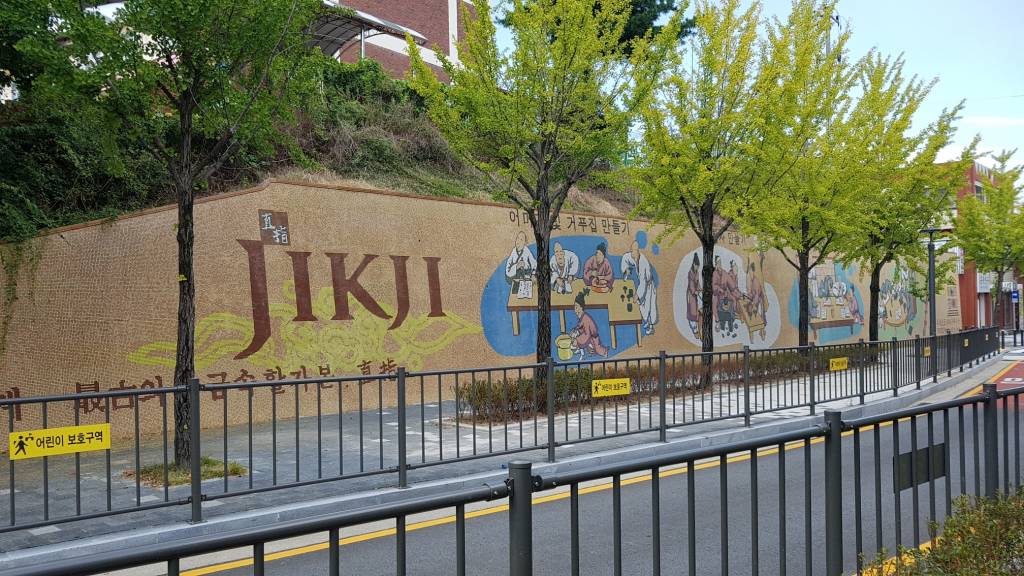
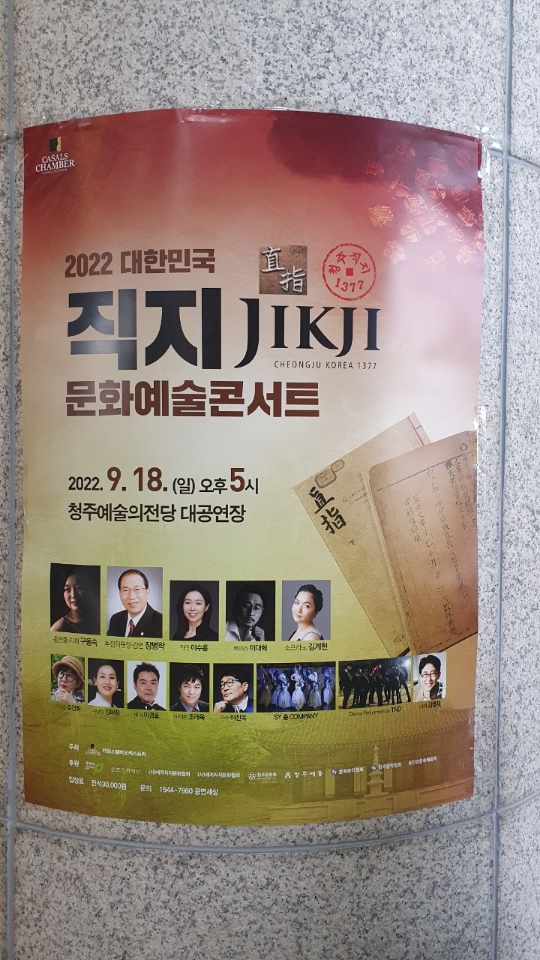
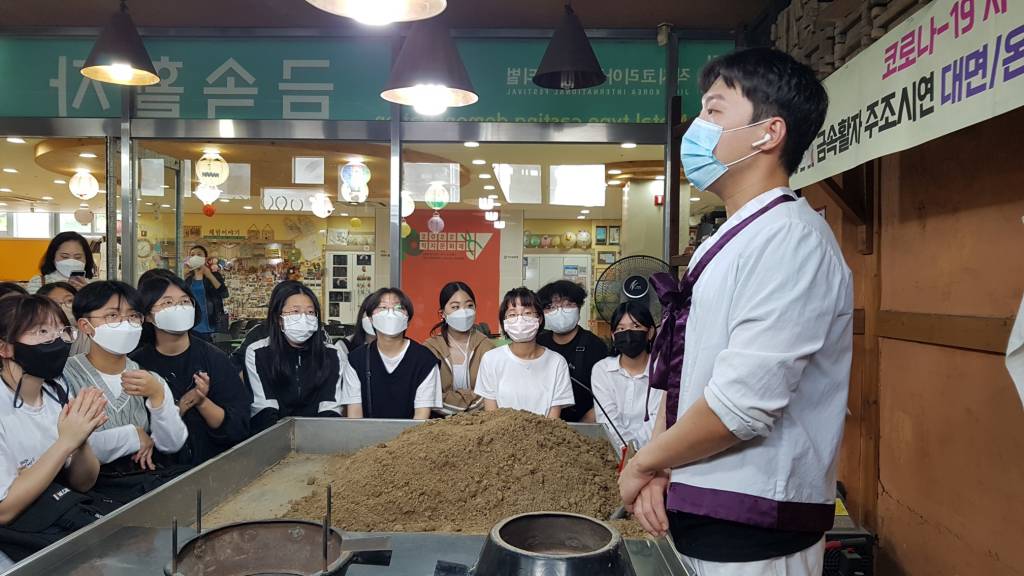
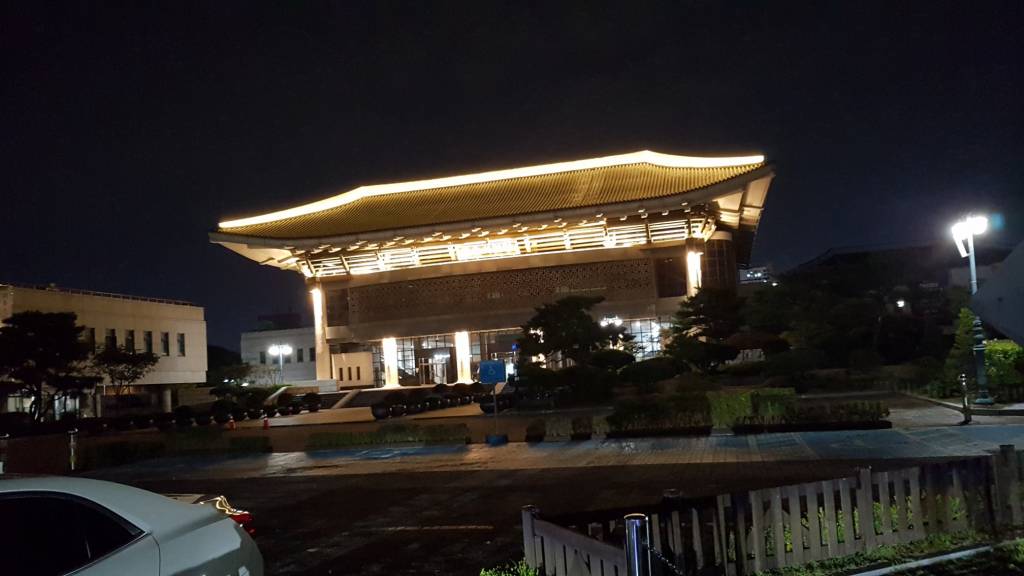
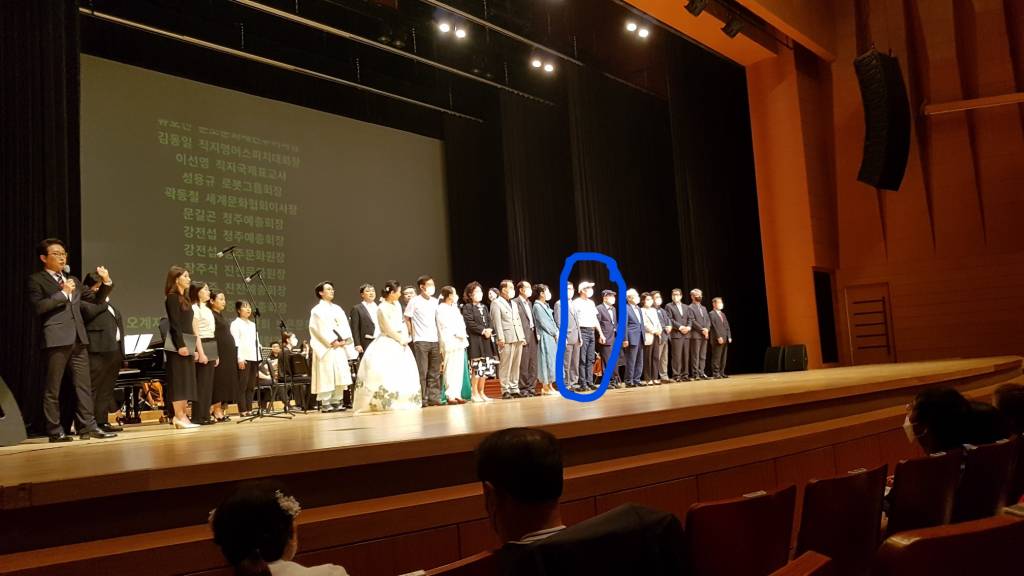
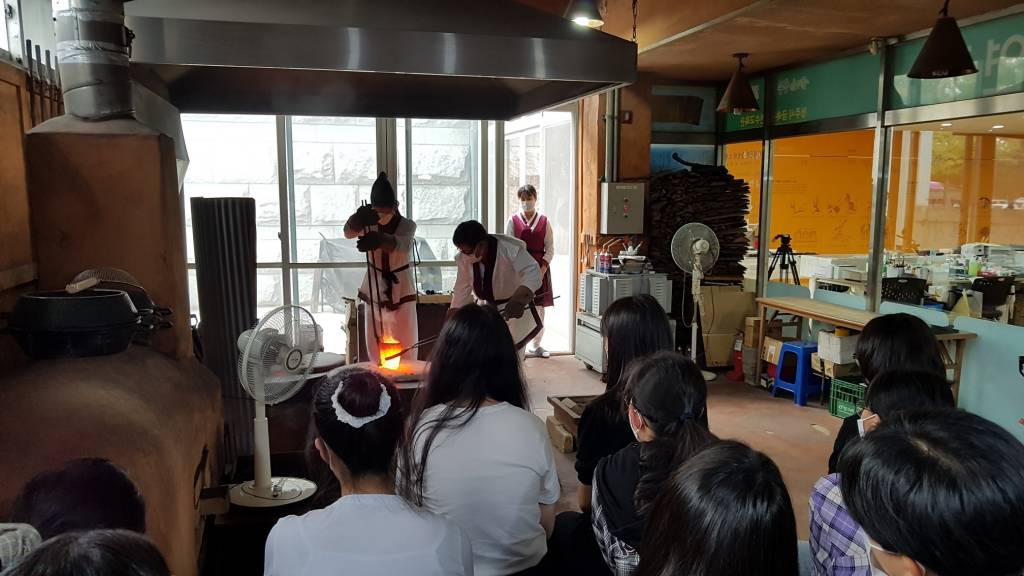
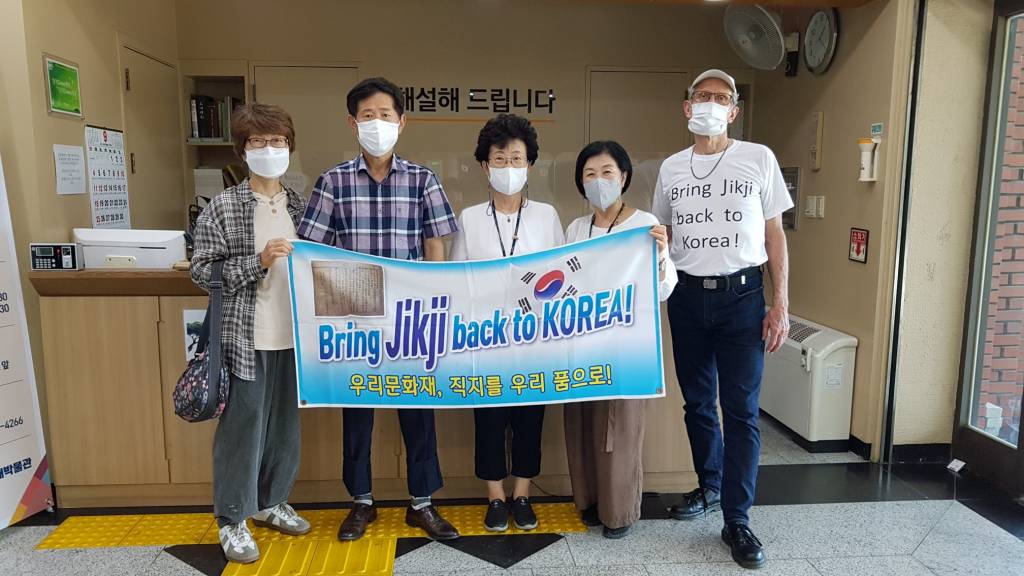
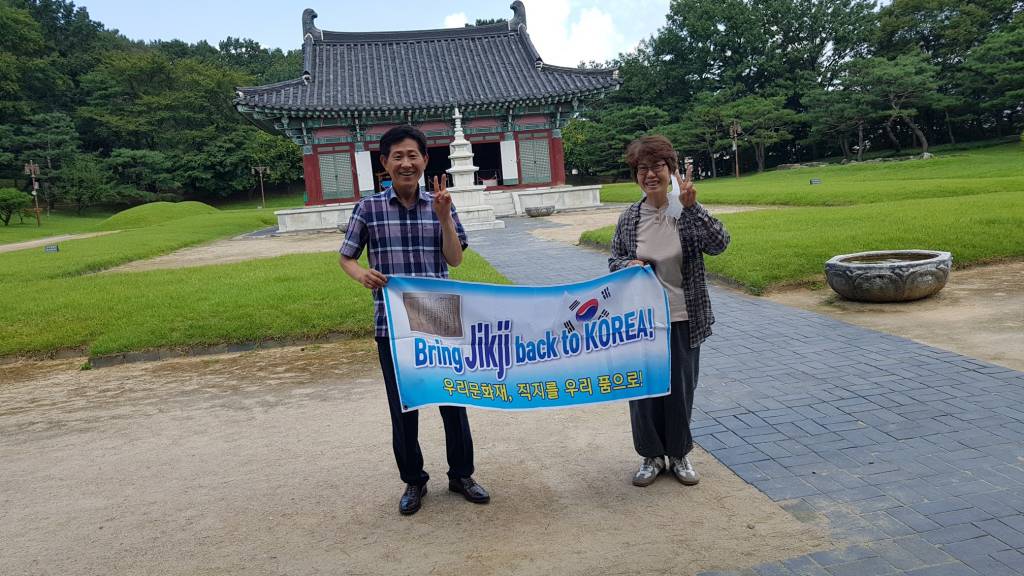
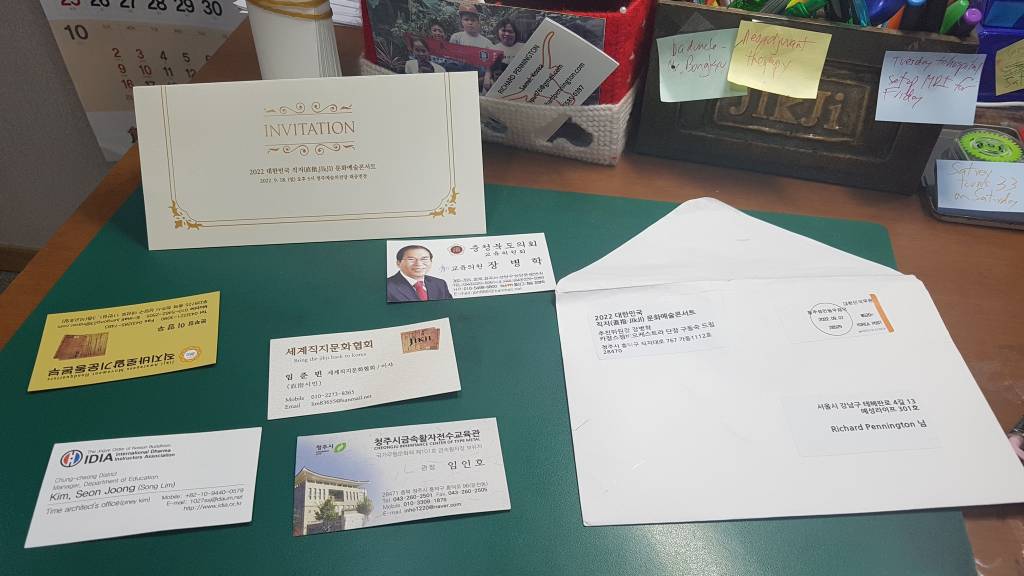
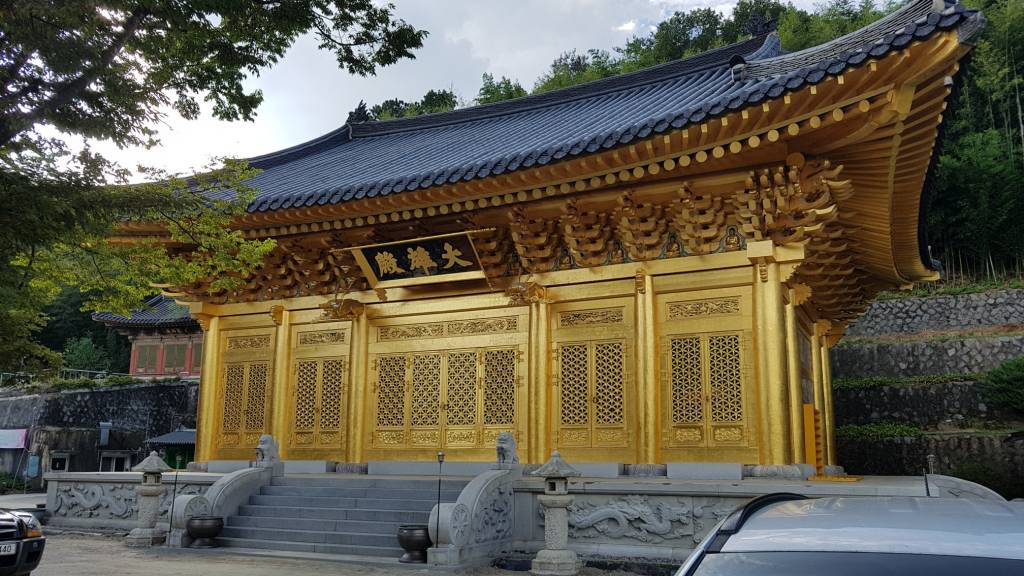

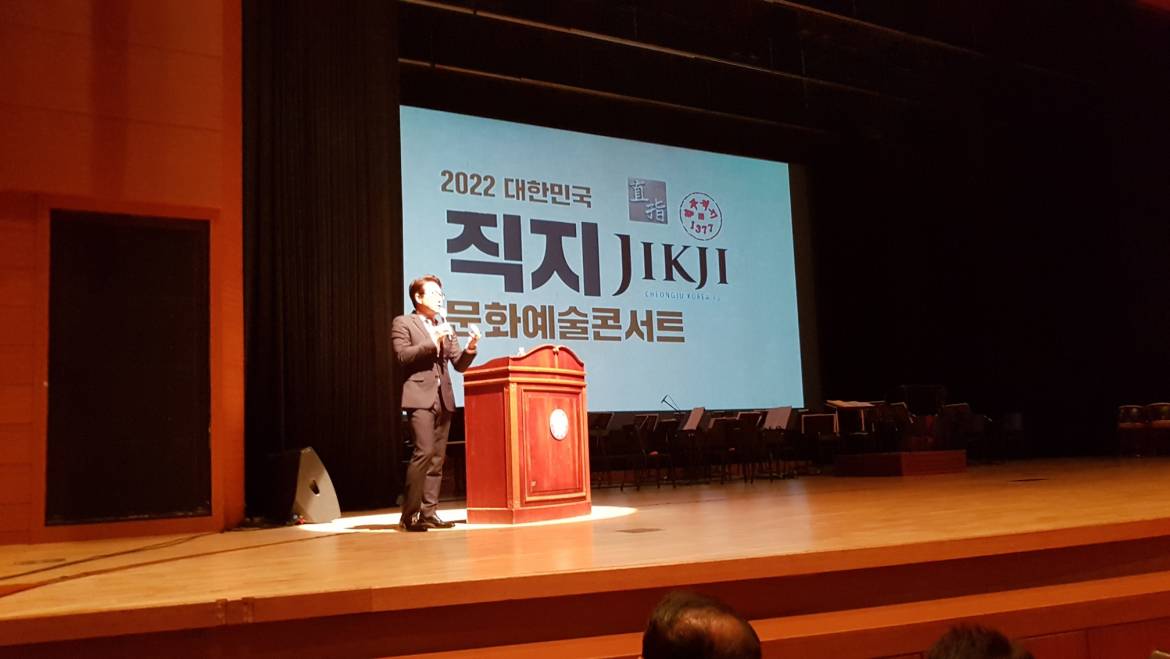
4 Comments
Richard, I am delighted that the effort that you started to bring Jikji home is developing some traction among the populous. You spent so much energy and time to bring the relic home, it must feel very rewarding to see what is developing at these grass roots. I am also glad for you, to receive such recognition and honor. Who knows the future, but it would be so satisfying to see Jikji come home as the ultimate fruition of all your work
Gary, I cannot deny–it is very gratifying to see this happening. As to what will result, who knows?
As you’ve mentioned in several other missives, your peaceful but protracted fight for the liberation for a gemstone of Korean culture has been arduous. It must be rewarding to see the faces of these good people as they realize progress is being made. Better yet, is their recognize that you have been and are one of the prime movers. Fight on, my good man!
Thank you, Darrell, thank you very much.
Add Comment